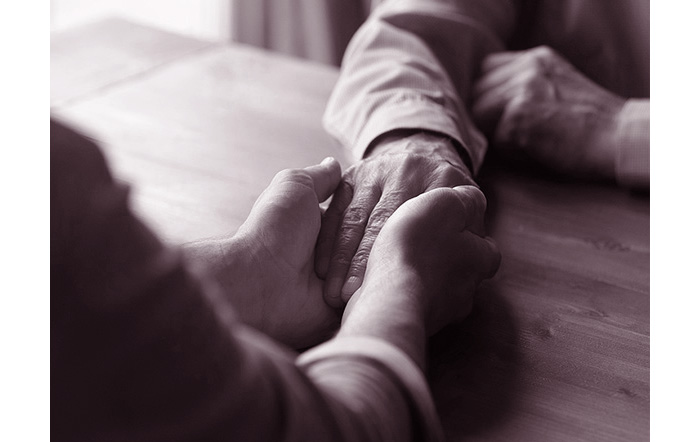Uproot in me, Lord, the self-pity on which self-love feeds. Let me not dwell with self-pity on my own sufferings. Let me not regret the loss of worldly pleasures, but remind me that such pleasures can never satisfy my heart. Let me henceforth ask for neither health nor life, but rather let me be content with your will for me. Let health and sickness, life and death, be equal in my sight. Let me joyfully acknowledge you as king, able to give or take away your blessings as you wish. Let me trust in your eternal providence, receiving with equal reverence all that comes to me from you.
And finally, as I share in your sufferings, let me one day share in the joy of your risen life. Amen.
Therefore, since we have been justified through faith, we have peace with God through our Lord Jesus Christ, through whom we have gained access by faith into this grace in which we now stand. And we boast in the hope of the glory of God. Not only so, but we also glory in our sufferings, because we know that suffering produces perseverance; perseverance, character; and character, hope. And hope does not put us to shame, because God’s love has been poured out into our hearts through the Holy Spirit, who has been given to us.
Romans 5:1-5
Dear friends, do not be surprised at the fiery ordeal that has come on you to test you, as though something strange were happening to you. But rejoice inasmuch as you participate in the sufferings of Christ, so that you may be overjoyed when his glory is revealed.
1 Peter 4:12-13
I have learned to be content whatever the circumstances. I know what it is to be in need, and I know what it is to have plenty. I have learned the secret of being content in any and every situation, whether well fed or hungry, whether living in plenty or in want.
Philippians 4:11b-12
This prayer is excerpted from the Pensees by Blaise Pascal.
Top image credit: close-up photo of loving support between ageing father and his son, from Bigstock.com, © by fizkes, stock photo ID: 429877028. Used with permission.
Blaise Pascal (1623-1662) spent the first thirty-one years of his life doing what brilliant people do. He formulated Pascal’s theorem of geometry at sixteen. He created the first calculator at nineteen. He invented the syringe, the hydraulic press and a whole lot more. For good measure, he also formulated the theory of probability.
Everything changed on the night of November 23, 1654. He called it his “night of fire.” For two hours, he had an experience with the transforming love of God that changed the course of his life. He was reading John 17, where Jesus prays before giving himself over to be crucified. As Blaise read, the room filled with God’s presence. He wrote on parchment a description of what happened and sewed it into the lining of his coat to be reminded of it. For the remaining years of his life, Blaise devoted himself to writing various defenses of the Christian life. His last work, still in fragmentary form, was published after his death as Pensées (Thoughts).
[Short bio by Reverend Dr. Peter James]



